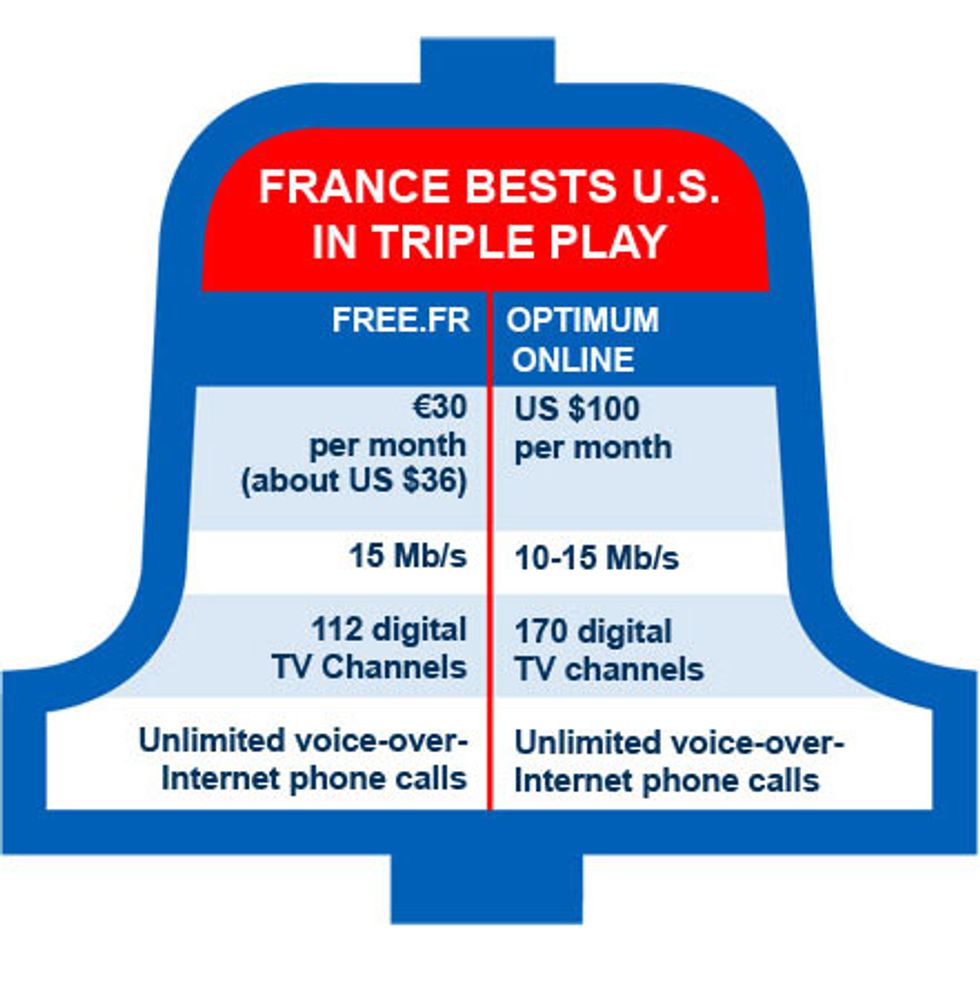Alcatel & Lucent: though the deal initially was described as more or less a merger of equals, by now everybody knows that the higher-performing Alcatel SA will be the dominant partner and that Lucent Technologies Inc.--the lineal descendant of AT&T's Western Electric--will play second fiddle.
This means, among other things, that Alcatel will take control of what was once AT&T Bell Labs, until recently the world's premier research outfit. What was once the main jewel in the crown of the old Ma Bell now might be called, in France's vernacular, Maman Bell Laboratories.
How is it that one of France's favored national companies has acquired control of the top U.S. telecom equipment maker? Obviously, it's a long, complicated story, but one element in it, surely, is the strong forward push French regulators have given advanced Internet technologies. And that, in turn, may be related to the exceptional respect the French accord engineering training and experience in the management of technological affairs.
France's Autorité de Régulation des Communications Electroniques et des Postes (ARCEP) has required the country's incumbent telephone monopoly to open its system to competing providers of broadband services. As a result, innovative start-ups like Iliad and Free.fr offer combined television, telephony, and Internet access at monthly rates well under US $40, while a compara-ble package often costs three times as much in the United States [see table, "France Bests U.S. in Triple Play"]. Another effect of open competition has been to give the national phone companies and their dominant equipment suppliers a sharp kick.
In the United States, in contrast, the Federal Communications Commission and-- the courts have largely unburdened incumbents from having to open their networks. On the North American side of the pond it's oh-so-fashionable to be condescending about the French, but just consider the people the French select to guide their communications strategy versus those making policy in Washington. Of the four sitting commissioners on the U.S. Federal Communications Commission, two were trained as lawyers and two as historians. Of the seven members of France's ARCEP, however, three are graduates of the Ecole Polytechnique--France's near-est equivalent of MIT or Caltech--and a fourth has taught there.
Without belittling the impressive credentials of the FCC chairman, Kevin Martin, ARCEP Chairman Paul Champsaur [ ] arguably has more relevant qualifications, having run one of France's top research organizations. Other ARCEP members include a president of a college of mechanical and energy engineering; an "engineer in chief" of telecommunications; a general engineer in telecommunications; and a doctor of mathematics and economic sciences.
